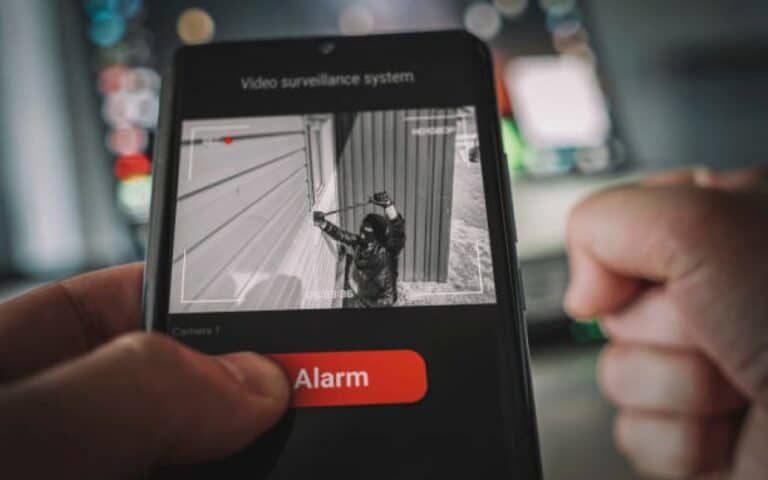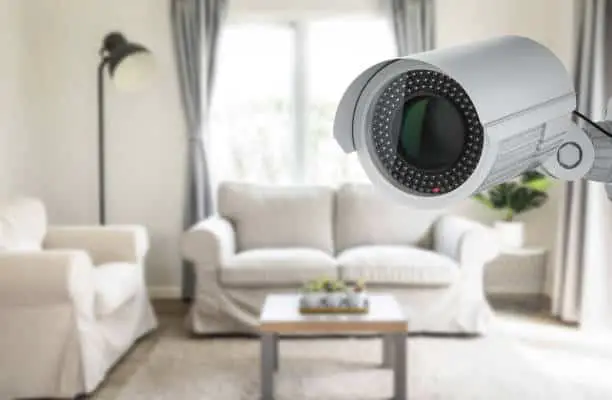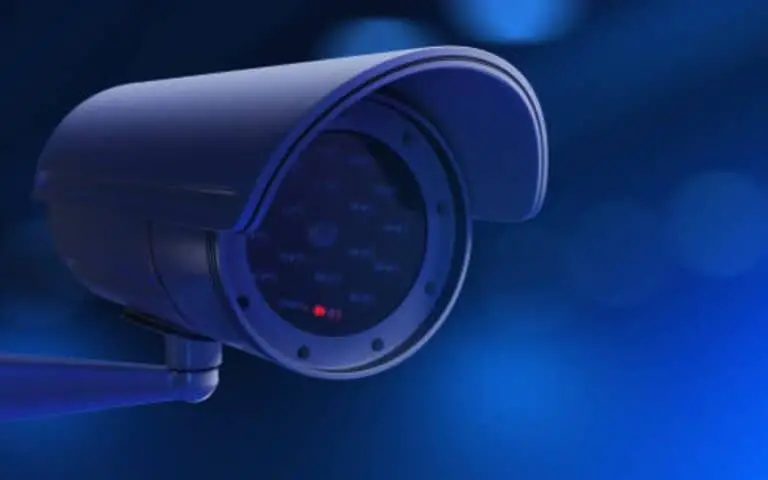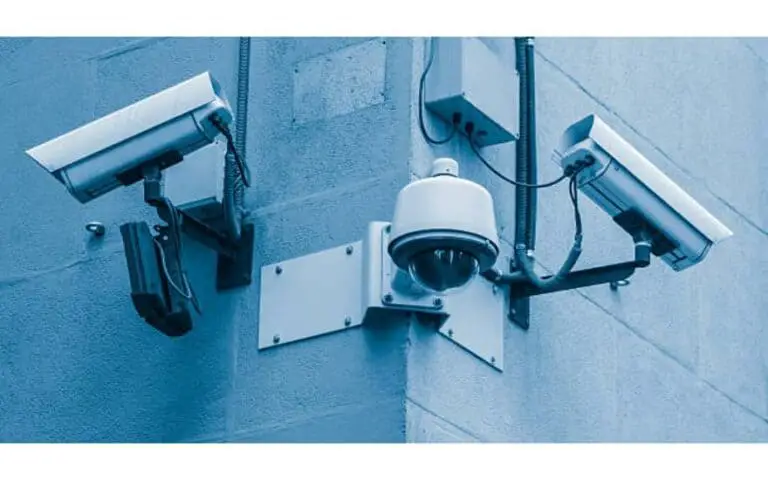It’s no secret that security cameras have become a popular household item in recent years, serving as a valuable tool to keep your property and loved ones safe. I am here to answer all your burning questions on whether security cameras have night vision and how it can benefit your household.
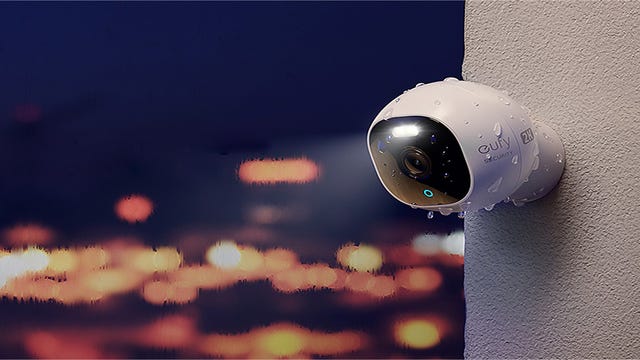
1. Night Vision Capabilities of Security Cameras
When it comes to keeping our homes and establishments safe, having a security camera that can see at night is crucial. The ability to detect heat sources via thermal vision is one way security cameras can capture footage at night. However, the quality of the camera itself is the most important factor.
- A high-quality camera with modern features can deliver clear images and videos, making surveillance more effective. Focal length is also an essential factor to consider, as it determines how far a security camera can see.
- The location of the camera matters as well – obstructions and glare from direct light can limit the camera’s field of view, even if it has night vision capabilities.
- Night vision security cameras use infrared technology to see in the dark. However, not all cameras have infrared cut-off filters, which can cause problems with daytime image quality. A mechanical IR-cut filter switch can solve this issue, improving image clarity and preventing lost focus when switching between daytime and night modes.

When shopping for a night vision camera, it’s important to look for features beyond just infrared illuminators. The three main features to consider are infrared illuminators that match the camera’s lens’s field of view, the quality of the camera’s daytime and nighttime footage, and the presence of an infrared cut-off filter. By taking these factors into account, you can choose a night vision camera that meets your needs and provides reliable security. [1][2]
homequeries
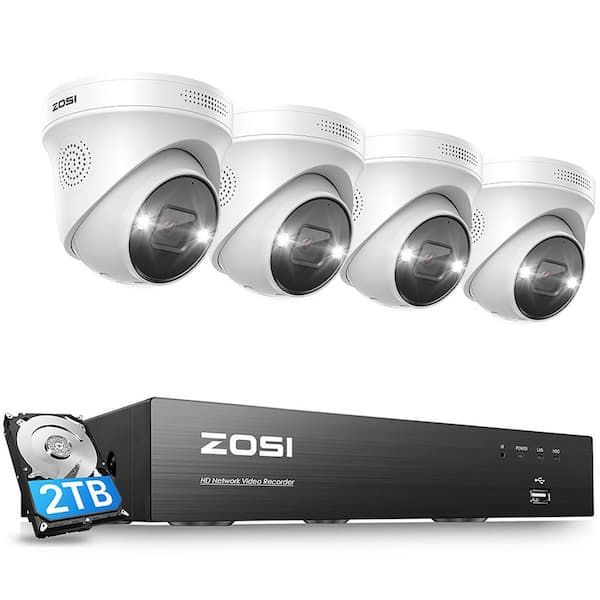
2. Understanding the Purpose of Night Vision Cameras for Security
When it comes to home security, one of the most important considerations is having a reliable night vision camera. These cameras have the ability to see in low light or darkness, making them invaluable for keeping an eye on your property 24/7.
The main purpose of night vision cameras for security is to provide surveillance footage that can help deter criminal activity, or at the very least, help identify those responsible if a crime does occur. As someone who takes home security seriously, I prioritize the use of night vision cameras to ensure that my property is always protected, no matter the time of day. [3][4]
homequeries
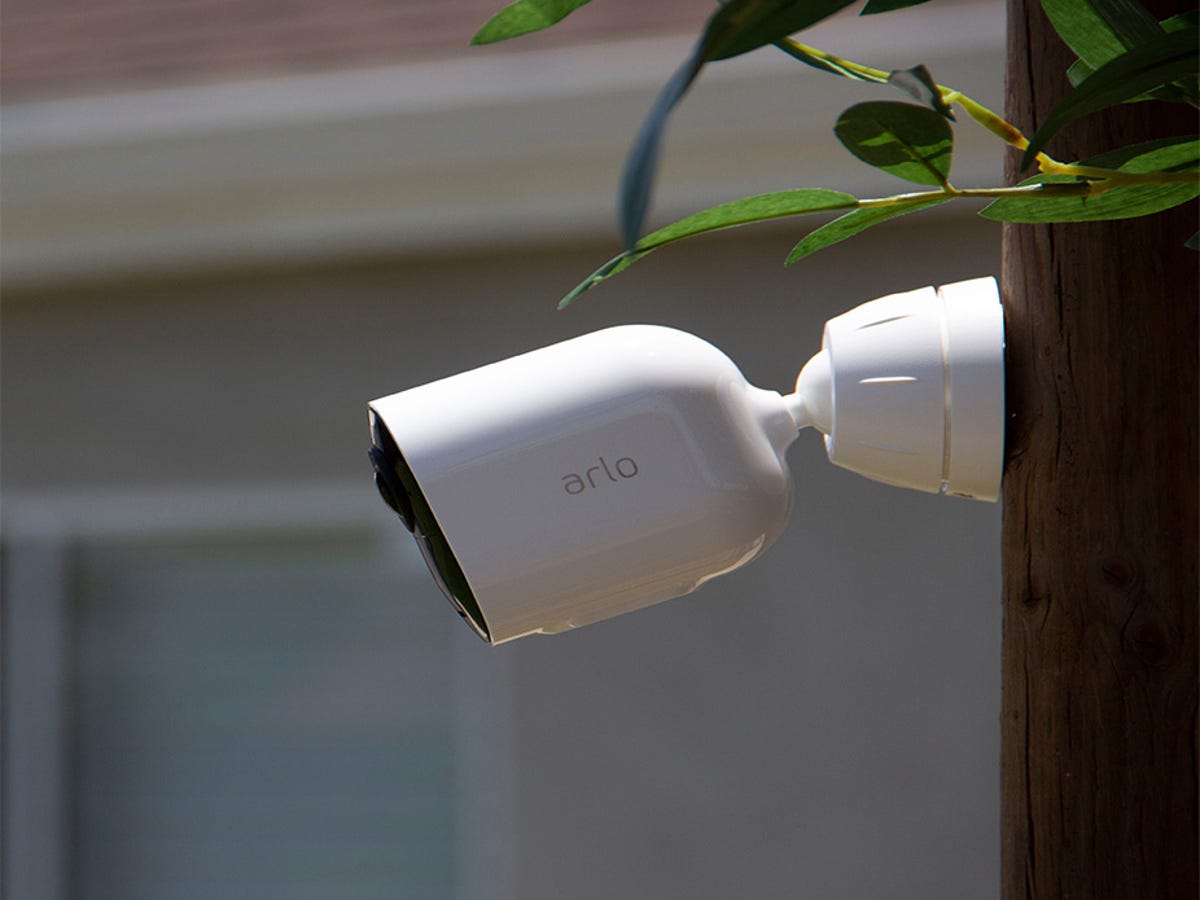
3. How Night Vision Enhances Security Camera Surveillance
Night vision is a crucial feature when it comes to security cameras. It enhances the surveillance by enabling the camera to see in low-light conditions or even in complete darkness. As a result, it ensures that you can monitor your premises, whether at home or at a business, 24/7.
- With the advancement of technology, modern security cameras come equipped with sophisticated night vision capabilities, such as infrared LED lights, which can illuminate the area up to 130 feet away. Cameras with infrared night vision have an upper hand over those with color night vision, as they are more subtle and inconspicuous.
- Also, they provide superior illumination range at night. Therefore, before purchasing a security camera, check if it has a night vision feature.
- Night vision enhances security camera surveillance by providing a clear view even in low-light conditions. It allows you to monitor your premises at night and act promptly in case of any suspicious activity.
- Furthermore, night vision cameras record footage in high definition, ensuring that all events are captured clearly. This feature is especially important for businesses that experience higher incidences of criminal activities at night. Moreover, security cameras with night vision capabilities can detect any activity even in complete darkness, providing you with a comprehensive surveillance solution.
The quality of your night vision surveillance depends on the specific features of the camera. The most essential feature is the infrared cut-off filter, which improves image clarity and prevents out-of-focus images. It filters out mid-infrared wavelengths, ensuring that the camera can pick up the same natural colors as the human eye.
Other critical features include infrared illuminators, which match the camera’s field of view, and the day and night time quality of the camera. When purchasing a security camera with night vision capabilities, ensure that it has advanced features to provide an effective surveillance solution. [5][6]
homequeries

4. Types of Night Vision Technology in Security Cameras
As a security expert, I know that there are different types of night vision technologies used in security cameras. These technologies allow the cameras to capture usable images in low to no light conditions.
- The first type is low light night vision, which is also known as image intensification. These cameras use an image intensifier that relies on image intensification technology to deliver colored night vision in very low light.
- They need some available light to produce a color image and are cost-effective and efficient. They outperform IR night vision cameras since they are the only cameras that can produce a color image in low light level conditions.
- Another technology utilized in night vision security cameras is infrared night vision. These cameras come with built-in infrared LEDs, allowing them to provide night vision in low light or no light conditions.
- They include an IR cut filter, a mechanical shutter placed between the lens of the camera and the image sensor that automatically detects ambient light, which applies a filter to block out the IR light during the day to keep the clarity of the daylight. At twilight, the light sensor simply sends a remove signal to the infrared cut filter, allowing more light, including the IR light coming from the camera itself.
- A third technology utilized in night vision security cameras is thermal night vision. These cameras use a unique lens that allows IR energy to pass through it. The focused light then hits a sensor that scans the information and draws from several thousand points in the field of view. Thermal imaging technology uses heat and can see no matter the light level.
- These cameras are completely immune to smoke, dust, and anti-CCTV surveillance devices. They eliminate false alarms and are the only solution to address a visible image contrast to see at night.
If you are in the market for night vision security cameras, understanding the different types of night vision technology is crucial for making an informed decision. Depending on your security needs, low light night vision, infrared night vision, and thermal night vision may provide the level of security you require. Before starting shopping, review these technologies to decide which best suits your surveillance needs. [7][8]
homequeries

5. Advantages of Having Night Vision Security Cameras
I highly recommend having night vision security cameras in your home or business. As burglaries and intruders become more common nowadays, it’s crucial to have adequate security measures in place. Night vision cameras provide exceptional image quality even at night time, which is one of the primary advantages of this type of security camera. It allows for clear surveillance even during the darkest hours of the night.
- With night vision security cameras, you can capture activity without people even knowing they’re on camera. This is because infrared LED lights, which are invisible to the naked eye, surround the camera lens. When motion is detected, these lights turn on and record the images that bounce back in black and white. This feature is essential for avoiding break-ins and monitoring entry points.
- Not only are night vision security cameras highly effective in surveillance, but they are also cost-effective and easy to install. Compared to other security systems that may require additional lighting, a night vision camera only needs built-in LEDs for it to function well.
- This makes it easier to monitor your property 24/7 without breaking the bank.
- Another benefit of having night vision security cameras is that it can be seamlessly integrated with other home automation devices.
- By setting up a network of your security system with other devices like motion detectors, alarm systems, and window sensors, you can automate your security procedures. For instance, you can program the cameras to send alerts and turn on lights whenever it detects an intruder.
Lastly, having footage from your night vision security cameras may be requested by the police or your insurance company in case of any incidents. It provides evidence that can help with investigations and insurance claims. Whether it’s for your home or business, investing in night vision security cameras can provide greater peace of mind and security that you need. [9][10]
homequeries
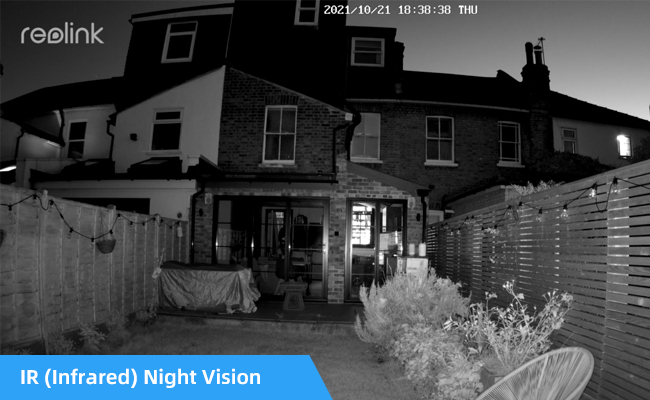
6. Factors to Consider When Choosing Night Vision Cameras
When choosing a security camera with night vision, there are six factors to consider. The first factor is the camera’s IR (Infrared) capability. Infrared cameras use infrared light to create an image in low-light conditions. The second consideration is the camera’s lux rating. This measures the camera’s minimum illumination needed to capture a clear video. Cameras with a lower lux rating are better in low-light conditions.
Another factor to consider is the camera’s resolution. A higher resolution camera will provide a clearer image even in low light situations. The camera’s lens is also important since it controls how much light enters the camera. Lenses with a larger aperture allow more light to enter, making them better in low light situations.
Finally, it is important to consider the camera’s physical housing. Cameras with a durable and weather-resistant housing will last longer and provide better protection against the elements. Ultimately, choosing a security camera with night vision is all about finding a camera that best fits your specific needs and budget.
homequeries
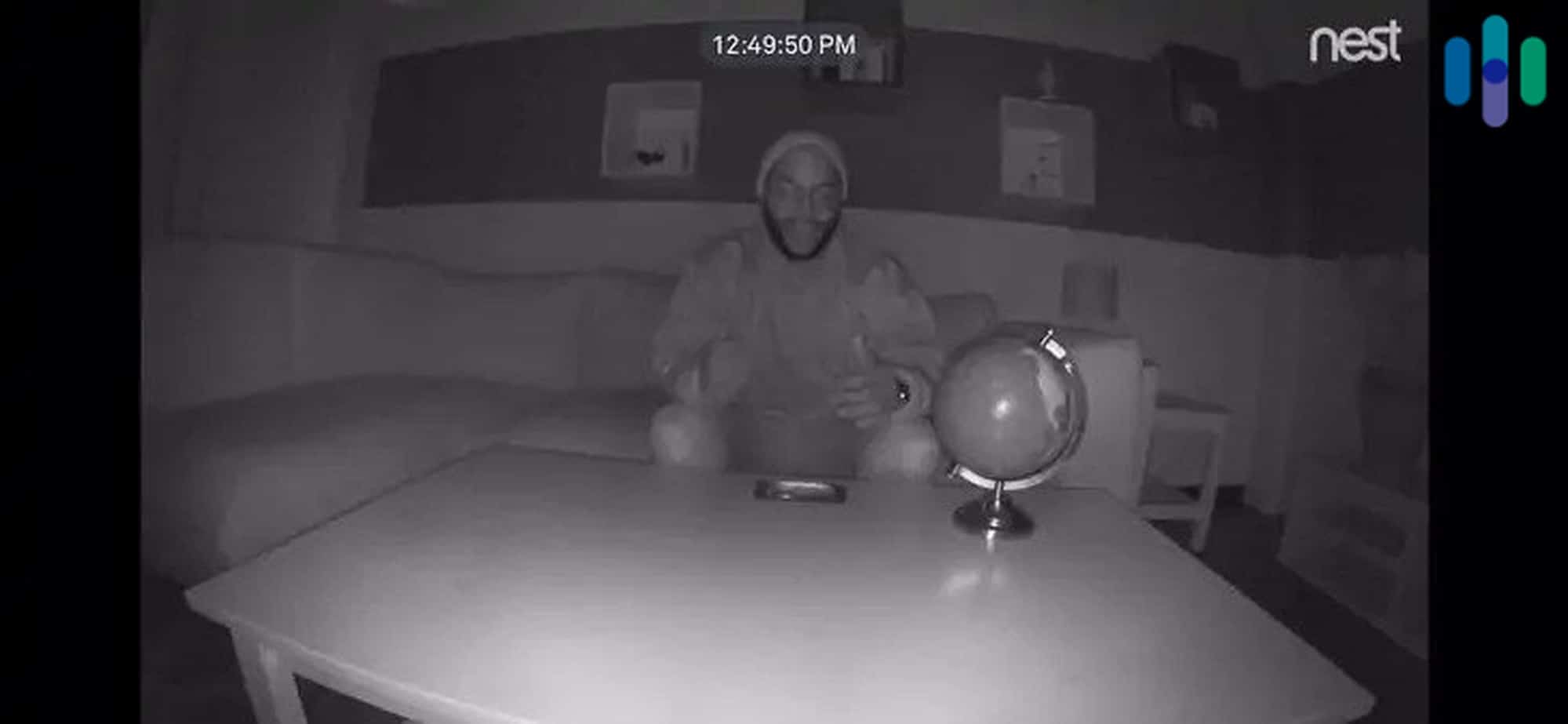
7. Popular Brands of Night Vision Security Cameras
When it comes to night vision security cameras, there are several popular brands worth considering. One such brand is Lorex, and their 4K Nocturnal Smart IP Camera is a standout option. This camera has a night vision range of up to 90 feet in total darkness and can see up to 130 feet with ambient lighting.
Lorex cameras are great for outdoor use and provide clear and crisp images even in the most challenging lighting conditions. Another top brand is Arlo, which offers both wired and wireless cameras that feature high-quality night vision capabilities.
The Arlo Pro 4 camera, for example, has two infrared LED lights for infrared night vision and one spotlight for colored night vision. With its customizable activity zones and 160-degree field of view, the Arlo Pro 4 is a versatile and powerful option for home security.
Nest, Lorex, and Arlo are just a few examples of brands that are leading the way in night vision security camera technology. When choosing a camera, be sure to consider factors such as range, resolution, and whether the camera is suitable for indoor or outdoor use. [13][14]
homequeries

8. Maintenance Tips for Night Vision Security Cameras
Security cameras with night vision are a valuable tool to protect your property in low light conditions. However, it’s essential to maintain them to ensure they’re working correctly. One of the most critical maintenance tips is to make sure the camera lens is clean. Over time, dirt and grime can accumulate on the lens, which can negatively impact the camera’s image quality. Therefore, you must regularly clean the lens to avoid such issues.
- Another essential maintenance tip for night vision security cameras is to check the infrared LEDs regularly. These LEDs are responsible for providing night vision capabilities to security cameras. But when they become damaged or faulty, the camera may not see in the dark. Therefore, ensure you test the LEDs regularly to verify they’re working.
- It’s also vital to ensure that your cameras are always getting enough power. Sometimes, a camera only appears to be malfunctioning because it’s not receiving sufficient power to operate correctly. Therefore, it’s crucial to ensure your camera has sufficient power for night vision.
- Furthermore, proper positioning of the camera is necessary for it to function correctly. You should mount the camera in an area where it has an unobstructed field of view. Also, avoid placing it too close to any light sources as this can interfere with its night vision capabilities.
- Lastly, regularly checking camera settings and resolving any issues early is vital for maintaining night vision security cameras. Ensure the camera settings are correctly configured, such as setting the resolution to the highest possible setting.
By following these maintenance tips for night vision security cameras, you can help maintain your camera’s night vision and protect your property effectively. [15][16]

9. Limitations of Night Vision Technology in Security Cameras
When it comes to security cameras, night vision is an essential feature to have. However, it is important to understand that there are limitations to the technology. One limitation is the distance at which the camera can see in the dark. While some cameras claim to have a range of up to 130 feet, the actual distance may vary depending on the lighting conditions and any obstacles in the way.
Additionally, the quality of the night vision footage may not be as clear as the daytime footage. This is because the camera is using infrared technology, which can result in black and white or grainy footage. Finally, it is important to note that some cameras may not be able to switch between day and night mode automatically, requiring manual adjustment. [17][18]
homequeries
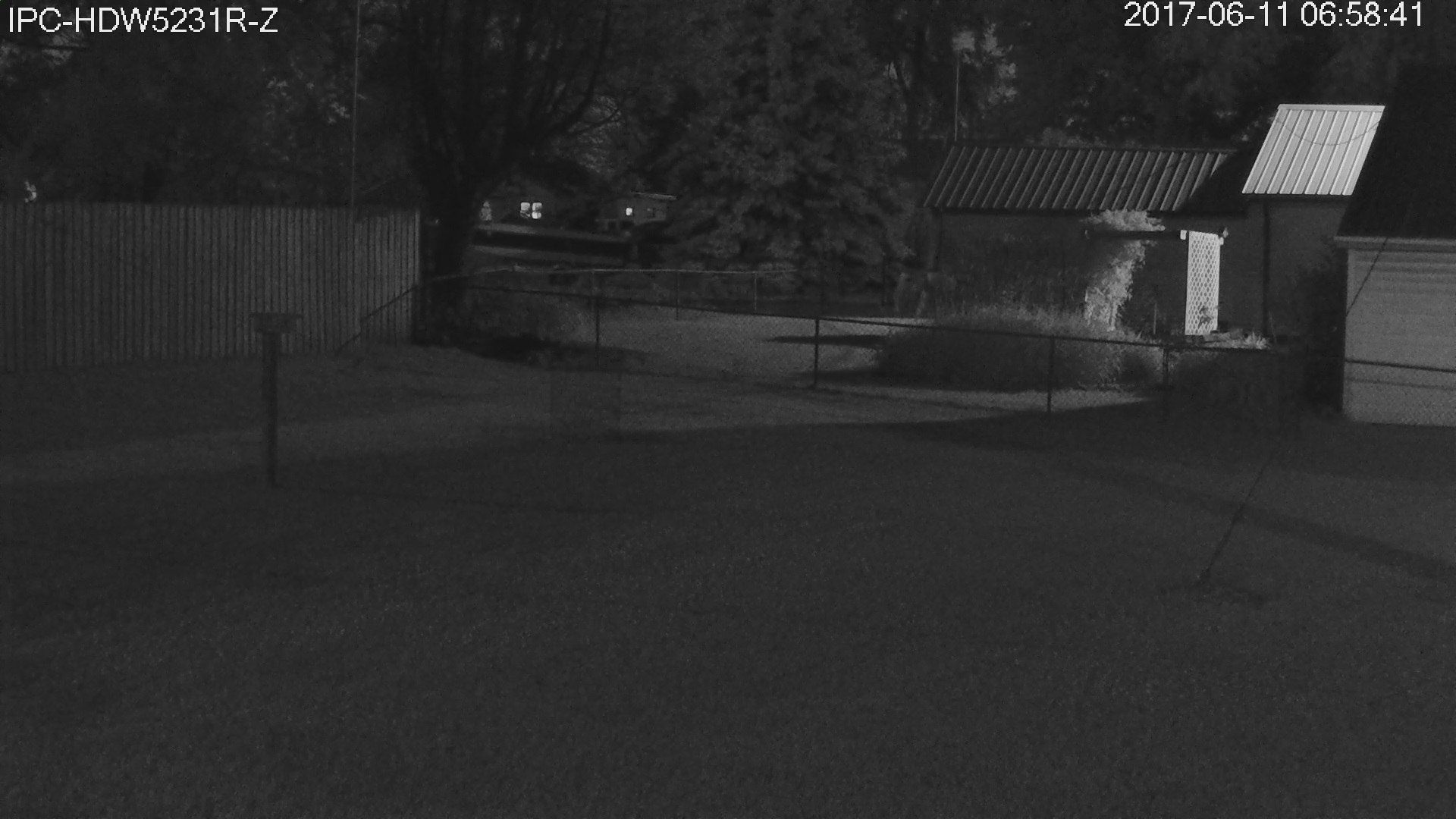
10. Future Developments in Night Vision Security Camera Technology
Night vision security cameras have come a long way since their inception. The latest advancements in this technology now offer higher resolution and improved night vision range. With the rapid advancements in technology, we can expect to see even further developments in the coming years.
- One substantial area of development in night vision technology is the use of artificial intelligence (AI). This feature enables cameras to recognize and identify specific objects, making them invaluable in detecting and preventing crime. Future iterations of AI could even predict potential criminal activity by analyzing patterns and behaviors.
- Another development we can expect to see is the continued integration of cameras with smart home technology. It is now possible to control cameras using voice commands, which makes them even more convenient for homeowners. In the future, we may see even more integration with other devices, such as smart locks and alarm systems.
- Wireless cameras have already revolutionized the way we monitor our homes. However, the next generation of wireless cameras will feature even greater battery life and wireless range. They will offer enhanced flexibility and versatility, giving users even greater control over their surveillance systems.
Finally, we can expect to see advancements in camera design itself. Cameras will become even more compact and inconspicuous, with sleek, minimalist designs that blend in seamlessly with their surroundings. Advances in materials and manufacturing will also make cameras more durable and resistant to damage.
As a homeowner, the advancements in night vision security camera technology mean that it is easier than ever to monitor your property. The developments above will expand the capabilities of these cameras, making them an even more essential tool in protecting your home and family. [19][20]
homequeries

FAQ
When choosing a security camera, night vision capabilities are of utmost importance, especially for home security. It’s important to keep in mind that not all night vision security cameras offer the same image quality. Make sure that the camera you choose has an infrared cut-off filter, which filters out mid-infrared wavelengths during the day to avoid color distortion.
Cameras without this filter may wash out colors with IR light, making them a waste of money. Additionally, look out for mechanical IR-cut filter switches, which improve image clarity and prevent out-of-focus images. Infrared illuminators, which match the Field of View of the camera’s lens, are also important for night vision.
Several factors influence how far a security camera can see, including the quality of the camera, its resolution, and focal length. It’s always best to get a high-resolution camera with a fixed or variable focal length appropriate for your needs. Additionally, make sure that the security camera is installed in a location free of obstructions and direct glare, as these can impact the field of view. Thermal vision is another way that security cameras can see at night. However, the most important thing is for the camera to not only see at night but to provide clear and high-quality images and videos. [21][22]

How do I know if my security camera has night vision?
As a security-conscious homeowner, you may wonder if your security cameras have night vision capabilities. One way to determine this is to check the camera’s specifications. Look for the words “night vision” or “infrared” in the product description.
If your camera has these features, it is most likely equipped with night vision capabilities. Another way to determine if your camera has night vision is to test it out during low-light conditions. If you can still see clear and detailed images, then your camera has night vision capabilities.
Keep in mind that not all night vision cameras are created equal. Look for cameras with infrared cut-off filters and IR-corrected lenses for improved image clarity and focus. Remember, investing in high-quality cameras with night vision capabilities is essential for maintaining 24/7 protection and peace of mind. [23][24]

How far can a security camera see at night?
As a security camera owner, one of our primary concerns is how far our camera can see at night. It is a vital factor that we need to consider to ensure that our establishments and homes are safe even during the night time. On average, security cameras can see up to 155 feet or 47.24 meters at night, and the maximum distance is around 300 feet or 91.44 meters. The distance that cameras can see at night depends on the quality of the camera, the number of LEDs on board, the strength of the infrared sensor, and the camera’s focal length.
The quality of a security camera plays a significant role in its ability to see at night. We need to ensure that we acquire one with excellent features that can deliver better images and videos at night. High-resolution cameras are also essential to ensure that we can see the details clearly. The focal length of our security camera determines how far it can see. We must select the right focal length that suits our needs and preferences to maximize its potential.
homequeries
Location also plays a crucial role in the camera’s ability to see at night. We need to ensure that we set up our security camera in a location that is free from any obstruction. A simple tree or wall can significantly affect the camera’s field of view, which can compromise the security of our property. Adding lights or purchasing a camera with a lighting system attached can also improve its night vision.
In conclusion, the distance that a security camera can see at night depends on various factors, such as the camera’s quality, the number of LEDs on board, the strength of the infrared sensor, and the camera’s focal length. As security camera owners, we must ensure that we choose the right camera that suits our needs and preferences, set it up in a location free from any obstructions, and improve its night vision by adding lights or purchasing a camera with a lighting system attached to maximize its potential and ensure the safety and security of our establishments and homes. [25][26]
homequeries

How do I turn on night vision on my security camera?
As a smart homeowner, you have taken the necessary steps to install security cameras to keep your property safe. You want to ensure that your security cameras work optimally, especially at night, when most crimes occur. If your security cameras have night vision, you may be wondering how to turn it on. It’s quite simple!
- First, you need to access the settings on your security camera. You can do this by logging in to the camera’s web server through your computer or mobile device. Once you’re in the settings, navigate to the night vision or low-light options.
- To activate the night vision, you can set a schedule for day and night mode based on the hours of the day. Some cameras also have an automatic switch that can detect when lighting is low, automatically turning on the night vision mode.
- One key element of night vision on security cameras is infrared light. Most cameras have built-in infrared LEDs to provide night vision in low light or no-light conditions. An infrared cut filter can also automatically detect ambient light and block out infrared light during the day to keep the image and clarity of daylight.
In summary, turning on night vision in your security camera is a straightforward process. By accessing your camera’s settings, you can configure the day and night mode schedule and adjust the infrared settings to ensure your camera captures clear images in low light conditions. [27][28]
homequeries
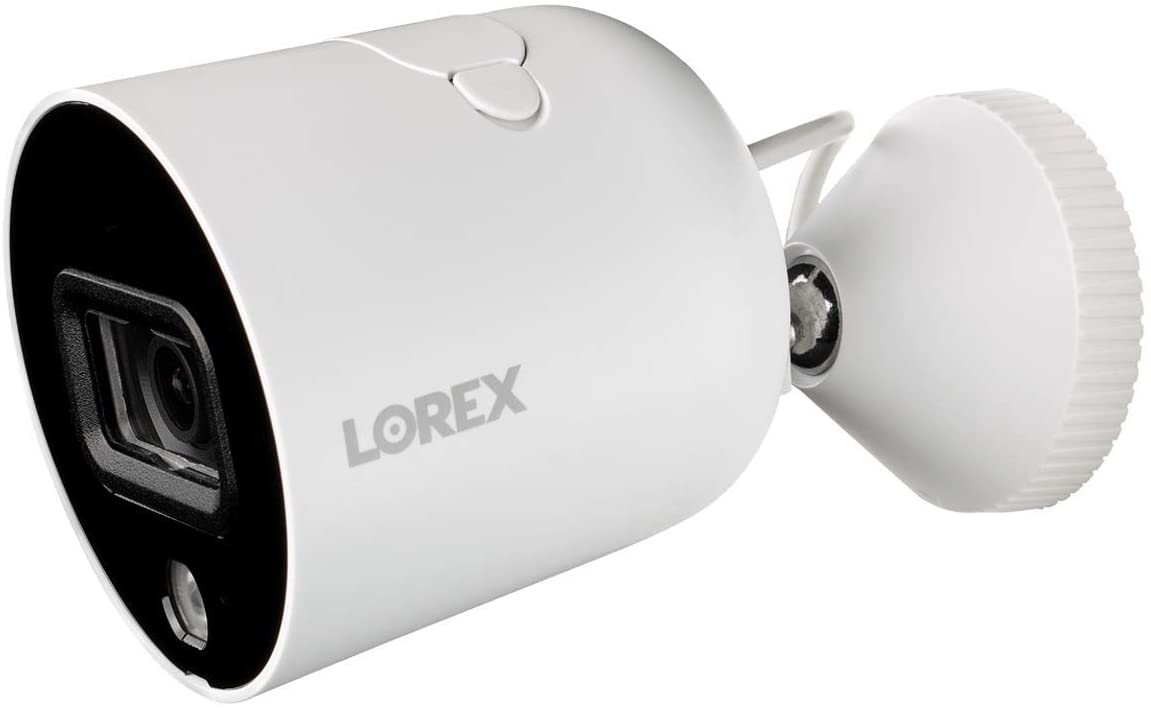
Final Verdict
I recently researched if security cameras have night vision and found that they do! Night vision cameras are equipped with advanced optical technology that allows them to capture images in near-darkness or complete darkness. These cameras use infrared radiation-sensitive lenses to capture images in the absence of visible light.
They can detect the presence of daylight and use an infrared cut-off filter to block out infrared light to maintain accurate colors during the day. At night, the filter is automatically removed to allow more light to enter the camera, including the infrared spectrum. This amplifies the ambient light to make objects visible in the dark.
Night vision security cameras are an essential part of a home security system. They capture clear images in the dark and offer round-the-clock surveillance of your property. With precise motion sensors and a motion-activated spotlight, night vision security cameras can capture even the most determined burglars. In conclusion, investing in a night vision camera for security is a smart decision. [29][30]
homequeries

